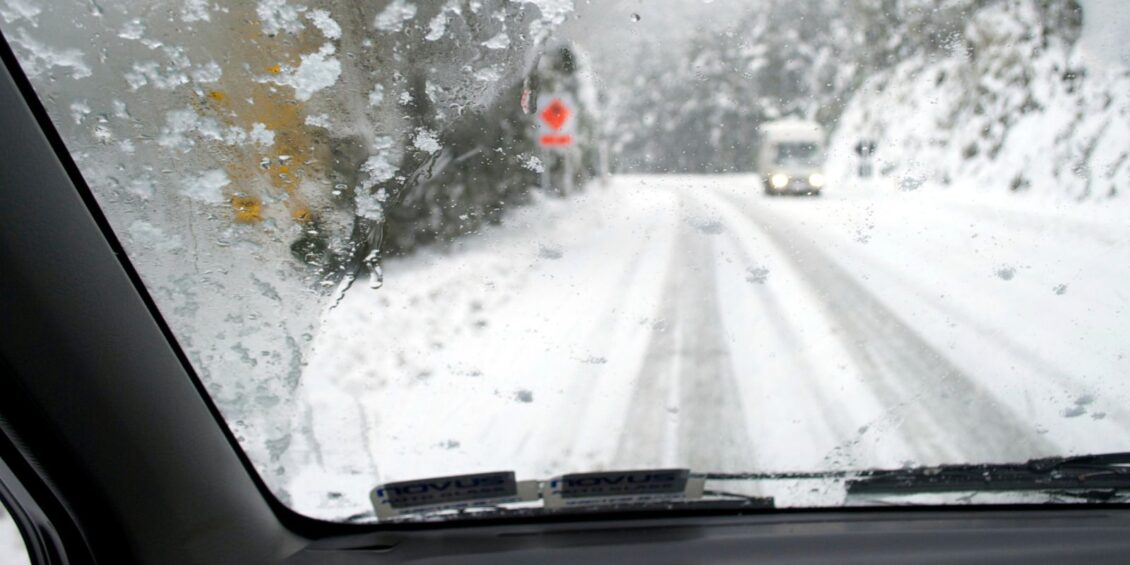February may be around the corner, but we’re still tackling wintry weather. In January, we’ve seen snowfall, sheets of ice coating the streets and two major storms in the space of a week. Before spring arrives, we may well see more extreme weather conditions.
All of this means that motorists face unique challenges on the road. The unpredictable weather conditions demand extra caution and preparedness. To ensure a safe, efficient, and hassle-free driving experience, it’s crucial for drivers to plan ahead.
Vehicle maintenance for winter conditions
To make sure your car is winter-ready, routine vehicle maintenance is essential. Before you set off, make sure your brakes, tyres, and fluid levels are all in order. Work these checks into your regular routine.
Worn-out brake pads and low tire treads can be particularly dangerous in icy conditions, so get these replaced if necessary. Also, switching to winter tyres will give your car a better grip on wet and icy surfaces. Be sure to check antifreeze levels to prevent your engine freezing, too.
Safety tips for winter driving
As well as ensuring your car is ready for the wintry weather, you’ll need to reconsider your own driving technique. Winter driving requires a different set of skills and precautions.
Make sure you keep to a safe following distance, especially in icy or snowy weather. By leaving a gap, you’re making room in case your car or the car in front skids on the ice.
Understanding how to handle icy or snow-covered roads is a key skill to have too. The way you drive changes here. Using lower gears and taking it slowly will help to prevent skidding.
You’ll be more mindful of other drivers in these conditions. Even of you’re well-versed in driving in winter, not all drivers are. Accidents do happen and it’s not unusual to hear of collisions.
If you’re in an accident, it’s important that you know what type of insurance you have as this will be needed. Should you get hurt because someone hits your car, you may be eligible for compensation. Making a claim might not be the first thing you think of, but if you’re entitled, it’s worth checking out a personal injury claim calculator.
Emergency preparedness on the road
An emergency kit can be indispensable. Pack essentials such as a blanket, flashlight, first aid supplies, and snacks This might all come in handy if you’re stranded in the snow or in the event of a breakdown until help arrives.
Staying informed about weather conditions
Before you set off, consider whether you absolutely need to make the journey. Keep informed about weather forecasts and road conditions and use apps that offer real-time updates, such as the BBC Weather app, so that you can plan your route.
Are you heading out in extreme weather? Do you feel prepared?









Leave a Reply
View Comments